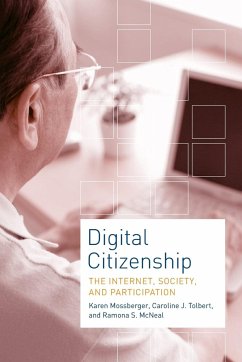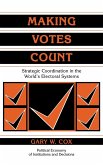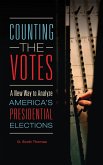This analysis of how the ability to participate in society online affects political and economic opportunity finds that technology use matters in wages and income and civic participation and voting. Just as education has promoted democracy and economic growth, the Internet has the potential to benefit society as a whole. Digital citizenship, or the ability to participate in society online, promotes social inclusion. But statistics show that significant segments of the population are still excluded from digital citizenship. The authors of this book define digital citizens as those who are online daily. By focusing on frequent use, they reconceptualize debates about the digital divide to include both the means and the skills to participate online. They offer new evidence (drawn from recent national opinion surveys and Current Population Surveys) that technology use matters for wages and income, and for civic engagement and voting. Digital Citizenship examines three aspects of participation in society online: economic opportunity, democratic participation, and inclusion in prevailing forms of communication. The authors find that Internet use at work increases wages, with less-educated and minority workers receiving the greatest benefit, and that Internet use is significantly related to political participation, especially among the young. The authors examine in detail the gaps in technological access among minorities and the poor and predict that this digital inequality is not likely to disappear in the near future. Public policy, they argue, must address educational and technological disparities if we are to achieve full participation and citizenship in the twenty-first century.
Hinweis: Dieser Artikel kann nur an eine deutsche Lieferadresse ausgeliefert werden.
Hinweis: Dieser Artikel kann nur an eine deutsche Lieferadresse ausgeliefert werden.








